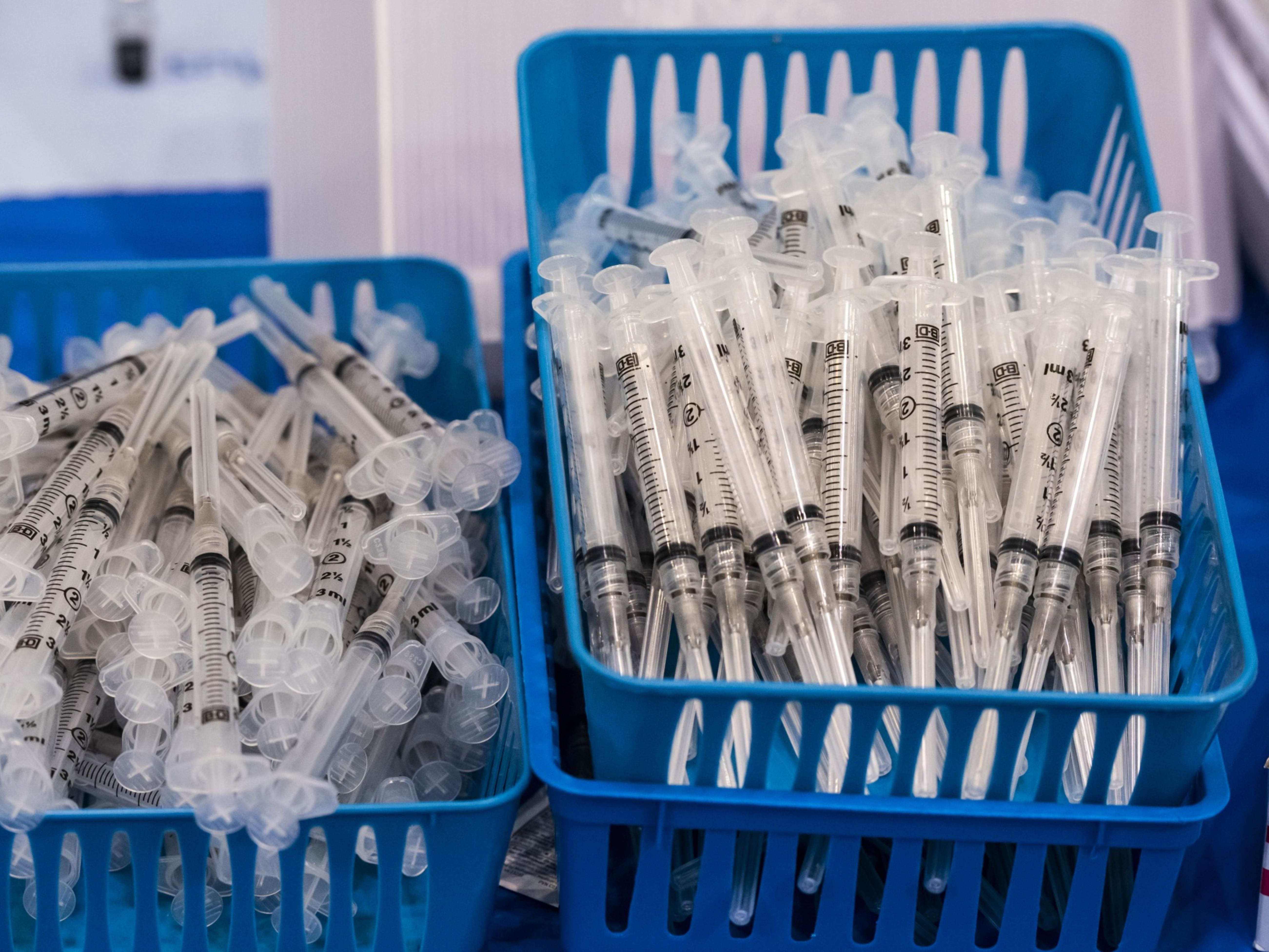
Visit Our Sponsors |
|
|
|
|
|
|
|
|
|
|
|
|
|
|
|
|
|
|
|
|
|
|
|
|
|
|
|
|
|
|
|
|
|
|
|
|
|
|

As a resurgence in COVID-19 cases prompts more U.S. employers to require vaccinations, workers who object face a common response: Get a shot or get another job.
In the past six weeks alone, a federal judge in Texas dismissed a lawsuit by employees who had sued over a Houston Methodist Hospital order, and another in Indiana blocked a challenge to Indiana University’s policy for its students and staff. At the same time, a growing number of private and public employers — including California and New York City — are telling workers that they must get vaccinated or face mandatory testing.
The alternative is to go the route of more than 150 Houston hospital employees who were fired or resigned as of late June after refusing to get the jab.
“There’s a longstanding precedent to set workplace rules,” said Dorit Reiss, a professor who studies vaccine policy at the University of California Hastings College of the Law. “A safe workplace is important not just for the employer, but also for the employees and for the consumers.”
As companies and governments bring workers back to offices — as well as navigate a nationwide labor shortage — managers are enacting more stringent vaccine policies. The slowing pace of inoculation in the U.S. has left unvaccinated residents vulnerable to the highly contagious delta variant; cases, hospitalizations and deaths from COVID-19 are once again on the upswing.
New York City Mayor Bill de Blasio is urging private employers to start requiring the shots, while health officials in the San Francisco area have made similar recommendations. The American Medical Association, in a statement issued this week and co-signed by more than 50 nursing, pharmacy, surgical, pediatric and other groups, urged mandatory vaccines for all such workers, save “a small minority” who have health-related reasons to avoid the shots.
“Vaccination is the primary way to put the pandemic behind us and avoid the return of stringent public health measures,” the Chicago-based medical group wrote. “This is especially necessary to protect those who are vulnerable, including unvaccinated children and the immuno-compromised.”
As of July 28, COVID-19 vaccine doses have been administered to 53% of the U.S. population, behind countries including mainland China, Germany, France, the U.K, Spain and Canada. The seven-day average number of doses administered in the U.S. was 291,565 as of July 22, down 35.2% from the previous week, according to the U.S. Centers for Disease Control and Prevention. In April, the U.S. was administering more than 3 million shots a day.
Complex Rules
As public and private employers compel employees to get COVID-19 vaccines, they are navigating a web of state and federal rules. In May, the U.S. Equal Employment Opportunity Commission issued guidance stating that federal laws “do not prevent an employer from requiring all employees physically entering the workplace to be vaccinated for COVID-19,” so long as the policy doesn’t conflict with civil-rights and disabilities laws.
Some states, though, have sided with employees on pandemic-related matters. Montana Governor Greg Gianforte, a Republican, in May signed a bill that prohibits employers from forcing their workers to disclose vaccination status. Hawaii and Oregon have set limits on contact-tracing technology that would reveal workers’ whereabouts to their employers. Brian Kemp, the Republican governor of Georgia, signed an executive order in May prohibiting state employers from having different rules for workers based on their vaccination status.
Private industries, meanwhile, have powerful self-interests and allies.
United Airlines, which expects to return to profitability in the third quarter as travel rebounds, is among companies requiring proof of vaccination from new hires. The Broadway show “Hamilton” in May announced that all cast and crew must be immunized, although it wasn’t demanding the same of audiences. At least 600 public and private colleges are requiring proof from their staff and students, according to the Chronicle of Higher Education.
Hospitals Lead
At least 433 hospitals nationwide have mandates in place, according to the Chicago-based American Hospital Association, a trade group representing almost 5,000 health-care providers. On Monday, the U.S. Department of Veterans Affairs became the first federal agency to mandate COVID-19 shots. Physicians, dentists, podiatrists, optometrists, nurses, chiropractors and others who work in or visit veterans facilities have eight weeks to get inoculated.
California, the most populous U.S. state, will require all state employees in August to prove they’ve been vaccinated or wear a mask in the office and get tested for the virus at least once a week, Governor Gavin Newsom said Monday. San Francisco public employees have until Thursday to report their status, under penalty of perjury, according to a memo distributed by the city and county human resources department.
In New York, de Blasio is taking similar action for the city’s 300,000-member municipal workforce, with those who resist facing dismissal without pay. The most populous U.S. city reported a seven-day average of 837 new COVID-19 cases for July 24, more than double the average on July 11.
New York Governor Andrew Cuomo, a Democrat, said the state is powerless to order its more than 1,600 municipalities to require vaccinations, but warned that it was no time for “baby steps and incremental actions.”
“You don’t slow the spread that way,” Cuomo said. “We learned that lesson — been there, done that.”
RELATED CONTENT
RELATED VIDEOS
Timely, incisive articles delivered directly to your inbox.

